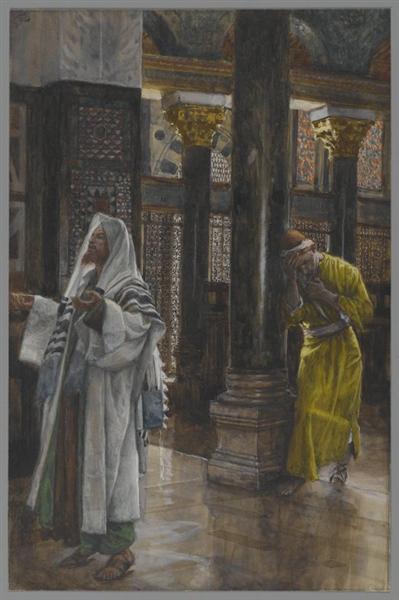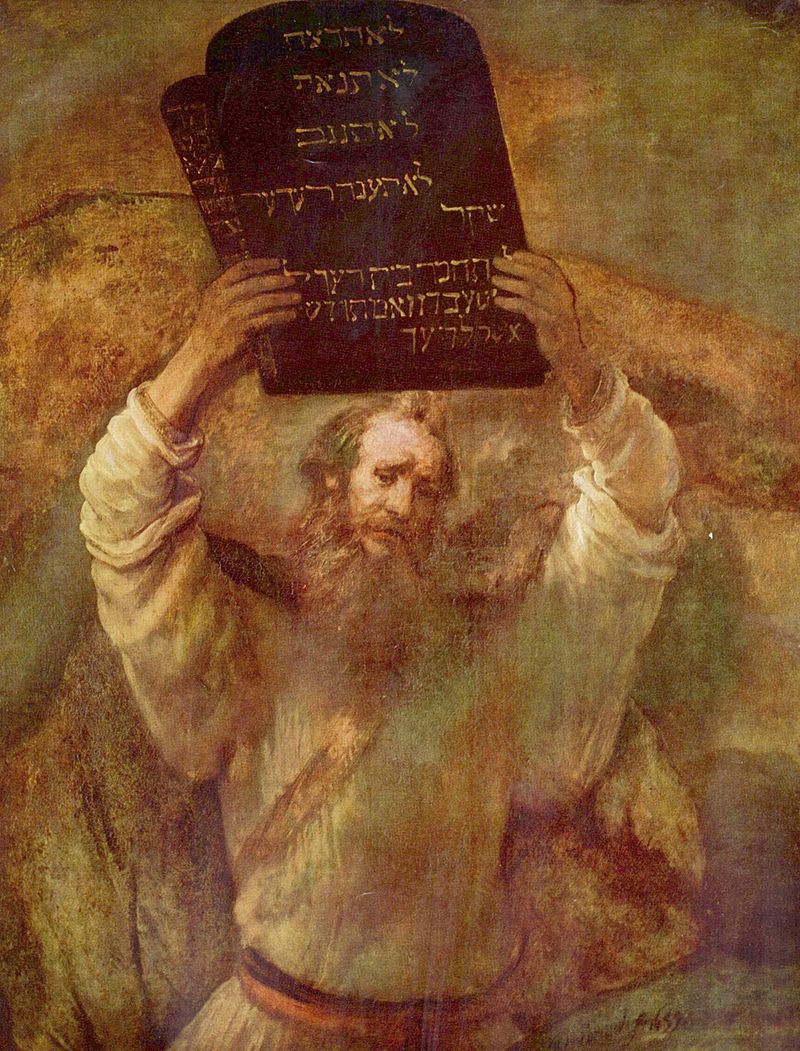Mark 7:31-37
Pastor James Preus
August 27, 2023
What’s the difference between a Christian and a heathen? Well? How do you tell the difference? Two men eat lunch, one is a heathen the other, a Christian. How do you tell them apart? The heathen eat just like the Christians do. Two men work a job. They both dig, lay pipe, haul gravel, and drive truck. What’s the difference? Does the Christian swing a hammer different than a heathen? Can you tell the difference between a Christian engineer and a heathen engineer sitting at his computer? Can you tell which house was built by a Christian and which one was built by an unbeliever? Two families go on vacation, one is Christian, the other are unbelievers. How do you tell them apart? You watch a basketball game. Can you tell which players are Christians by the way they dribble and shoot? Christians eat like the heathen do. They work like the heathen do. They rest like the heathen do. They play like the heathen do. They spend time with their families like the heathen do. So, what sets the Christian apart from the heathen? Two things: the ears and the mouth.
Now how can I say that? What is so special about the ears and the mouth that they of all things set a Christian apart from an unbeliever? Well, it is what you do with the ears and the mouth. Ears hear words. And the mouth speaks words. And Christ’s Kingdom stands only in the Word of God. Jesus says, “If you abide in my words, you are my disciples indeed, and you will know the truth, and the truth will make you free.” (John 8:31-32) It is the ears that receive God’s Word. It is the mouth that confesses God’s Word. St. Paul says, “For ‘everyone who calls on the name of the Lord will be saved.’ How then will they call on Him in whom they have not believed? And how are they to believe in Him of whom they have never heard? And how are they to hear without someone preaching? And how are they to preach unless they are sent? As it is written, ‘How beautiful are the feet of those who preach the good news!’ But they have not all obeyed the gospel. For Isaiah says, ‘Lord, who has believed what he has heard from us?’ So ,faith comes from hearing, and hearing through the word of Christ.” (Romans 10:13-17)
So, the difference between a Christian and a heathen is that a Christian’s ears listen to the Word of God, but the heathen’s ears do not listen to God’s Word. And a Christian’s mouth confesses God’s Word and speaks according to God’s Word, but a heathen’s mouth does not confess God’s Word or speak according to it. And that is the primary difference between you and the heathen. You listen to God’s Word and believe it. And you use your mouth to confess Christ and praise Him.
Here we see the gravity of the mute and deaf man’s situation and the great mercy Christ showed to him by opening his ears and loosing the bonds of his tongue. Without his hearing, the man could not hear the Gospel, which is the only way to be saved. God reaches our heart and causes it to be born again by going through our ears. The Holy Spirit convinces us with real words to turn from sin and to trust in Christ. So, Jesus did not simply make this man’s quality of life better by opening his ears to hear the voices of his family, friends, and co-workers. Jesus saved this man by opening his ears to hear the Gospel, so that He may believe and be saved. Jesus didn’t just loosen the man’s tongue, so that he could communicate clearly. Jesus cleansed His lips, so that He could praise His God and Savior with pure doctrine.
And this is the greater miracle we should all desire. What good is your hearing, if you will not listen to Christ’s Word? What good is your mouth, if you use it only to speak idle words and do not praise your Savior? And such refusal to understand what one hears is spoken of frequently by Jesus and the prophets, “Seeing, they do not see, and hearing they do not hear, nor do they understand.” (Matthew 13:13; Isaiah 6:9-10) Indeed, it would be better to be deaf and not be able to hear at all than to have ears that hear, but refuse to understand and accept the words of Christ. And we see this very much in this deaf and mute man. Jesus communicates with him, although the man cannot hear. He uses sign language, so that the man can understand that Jesus intends to heal his ears and mouth.
This is what I deal with frequently when I visit our elderly shut-in members. Many of them are hard of hearing. I must speak slowly and loudly, looking them in the eyes and opening my mouth widely, so that they can understand my words. I frequently point out the passage of Scripture I am reading, so that they can read along with me. And they, hard of hearing though they are, will look intently at my mouth as I preach. Although their hearing is almost gone, they have better ears than most people, who see no value in listening to God’s Word preached! Indeed, it would be better to lose your sense of hearing completely, but have the desire to hear the Gospel through sign language and the written word, than to have perfect hearing, but ignore God’s preaching, or having heard it, to let the seed sown in your ears be devoured by Satan, scorched by persecution, or choked out by the cares and pleasures of this life, as Jesus warns about in His parable of the sower and the seed. (Mark 4:3-88; 14-20)
Of course, Jesus concluded that parable by saying, “He who has ears to hear, let him hear!” (Mark 4:9) And that is a warning we should heed now. How much time do you spend listening to things that are of no benefit to your soul or are even harmful. It seems today that no one can stand silence. People go grocery shopping with earbuds in their ears. People don’t talk to each other while they exercise, they listen to their favorite podcast or music. And much of the discussion of these podcasts is irreverent and crass. And the music produced today is more often than not charged with sexual inuendo or demonic messaging. You have your choice of political commentators to listen to on the radio or on the internet twenty-four hours a day, spouting off their opinions as if they actually matter. Few seek out Christian council from their pastor or another Christian strong in the faith, but rather seek out advice from those, who ignore Scripture and tell them what they want to hear. And that is how most find their preacher as well, seeking out teachers to scratch their itching ears (2 Timothy 4:3).
We are bombarded with noise, hours and hours of messages enter our perfect ears every day, yet, we can’t seem to stand listening to Christ’s Word for twenty minutes on a Sunday morning. And what is the result of this? Our mouths become fountains of foolishness, false doctrine, and even debauchery. St. Paul warns, “Let there be no filthiness nor foolish talk nor crude joking, which are out of place, but instead let there be thanksgiving.” (Ephesians 5:4) Here St. Paul teaches us to guard the words of our mouth. But why does filth fall from our lips? Why do we make crass jokes, swear, and cuss? Because we listen to such filth. You cannot remain unaffected by what you hear. Likewise, St. James warns, “From the same mouth come blessing and cursing. My brothers, these things ought not be so. (James 3:10) We curse, swear, utter false doctrine, and slander our neighbor, because that is what we choose to listen to.
But if you listen to the evil and idle words of this world and you repeat these words with your mouth, how then are you different from the heathen? What makes you different from an unbeliever? The two things that set you apart from the unbelievers, is that you hear Christ’s Word and confess His Word. But if you stop listening and stop confessing, then you are no different than an unbeliever. People will repeat to themselves the lie that they do not need to hear God’s Word in order to be a Christian and they can keep their faith private instead of confessing it. Yet, that is not what Scripture says. Rather, Jesus says, “Whoever is of God hears the words of God. The reason why you do not hear them is that you are not of God.” (John 8:47) and St. Paul declares in Romans 10, “With the heart one believes and is justified, and with the mouth one confesses and is saved.” (vs. 10) God’s Word travels from the ears to the heart and then from the heart out the mouth. That is how a Christian is made. That is how a Christian’s ears and mouth work.
No one can seem to agree on why Jesus commanded them not to tell anyone. Earlier in this same region, he had told a man from whom he had cast out a legion of demons to go and tell what God had done for him (Mark 5:19). Yet, increasingly, Jesus tells those whom He heals not to tell anyone. What is clear; however, is that they don’t obey Jesus. They tell everyone who will listen.
And Jesus certainly would have expected this. This is the way God’s Word works. It cannot remain dormant. It must work through the ears and into the heart and out the mouth. “He has done all things well!”, they proclaimed. Indeed, He has. He even makes the deaf hear and the mute speak. Even more. He opens ears to understand the Gospel and hearts to believe it. And He even prepares praise from the mouths of little babies (Matthew 21:16). He has opened our ears to not only hear, but to listen to His grace. And so, He has created a clean heart in us to believe in Christ our Savior.
He has done all things well! Indeed, He is the only man who has ever done all things well. Adam did evil. And so, have his children after him. I have not done all things well. Have you? Of course, not. Yet, Jesus has. We have been disobedient, and so have merited eternal damnation. Jesus has been perfectly obedient, and so has earned for us eternal life. He did all things well, even to the cross, where He bore the burden of our sins and washed them all away in His blood. By doing all things well, Jesus has won for us eternal salvation and He has left nothing undone that needs to be done to save us.
And that is why our Salvation and indeed the entire Kingdom of Christ can be delivered to us in words. It is not up to us to earn our salvation with our arms and legs or intellect. It is not up to us to build Christ a kingdom by our labor. Christ has done all things well. He has prepared a kingdom for us and paid our entrance into it with His innocent suffering and death. And so, Christ’s kingdom comes to us through words. And we receive our salvation through our ears by listening to this Gospel and believing it. And so, God prepares good words of confession, thanksgiving, and praise from our lips. We can speak good words to our neighbor, because God has spoken good words to us. It is God who has set us apart from the heathen with His Word, so let us keep His Word in our ears and mouth for our salvation. Amen.




 RSS Feed
RSS Feed